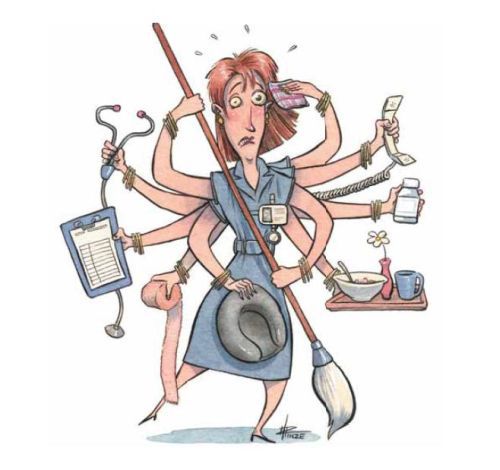
Caregiver Anxiety
Many Anxiety Sisters ask us for tips on how to deal with the overwhelming anxiety they experience as caregivers of elderly relatives, ill spouses, children with special needs, etc. As both of us have been caregivers over extended periods of time, we know that caregiving adds enormous amounts of stress to our already anxious and busy lives. We also understand that some of the same qualities that make Anxiety Sisters such excellent caregivers–sensitivity, empathy, sense of connection and responsibility–also make us more prone to anxiety: we are feelers through and through. Which makes the fact that caregiving is typically a thankless job (and often unpaid) even harder on our anxious souls.
To start, you need to recognize the value in what you are doing—even if others don’t. In a world that rewards financial gain, your caregiving is an example of what really matters for human beings: connection. And your role is even more important at this particular time, when human connection has been so devalued in the pursuit of technological advances and material wealth. Caregiving is nothing short of heroic in this world. Remind yourself of that every single day.
Next, find helpful resources. No matter how strong and competent you are, caregiving—especially over a long period of time—is more than one person can do alone. There are often organizations in your community that are set up for this purpose, such as ride services, Meals on Wheels, and volunteer aides. A social worker or advocate should know what resources are available near you. Faith-based organizations are often wonderful resources for caregivers, even if the religion is not your own.
Ask for help from friends and family. Stop waiting for them to ask if they can help and come up with tangible ways they can do so. The key to this tip is being very specific: “Would you pick up these items from the grocery store—here’s a list.” Asking for generalized help does not work. Family members often assume that caregivers have it all under control, but that is usually not true, which is why caregiving anxiety is so prevalent. Think of it as giving others an opportunity to help a loved one (you count as a loved one!), which can be rewarding for everyone.
Find a support group for caregivers. Of course, you can always count on your Anxiety Sisters. However, if you can find a group of caregivers dealing with the same issue, not only will you get empathy and support but also information and resources. The internet is wonderful in this regard—there are so many chat rooms and forums and networks for everyone. Time to google!
Redefine self-care. As a caregiver, you probably are not able to eat well, exercise regularly and get 8 hours of restful sleep. (Really, who can?) But a few minutes of diaphragmatic breathing, doing some crochet or needlework, or listening to soothing music can help quite a bit. A daily hot bubble bath or walk in nature is probably not doable. But perhaps once a week? As caregivers we are the first domino in a long line, and, if we fall over, the rest will follow. Small doses of whatever soothes you (ice cream counts!) is crucial.
Allow yourself to experience a full range of emotions without guilt. Despite the rare moments of grace and transcendence, caregiving can be exhausting, discouraging, frustrating, boring, and even disgusting. It is perfectly okay to recognize those parts of the experience. It is human to feel anger at the person we are caring for or wishing that this task will end, especially when we are already anxious and overwhelmed, sleep-deprived and depleted. Often, the person we are caring for is not him/herself due to medications, sickness, frustration, fear, etc. That person may not even treat us well, despite our devotion to his/her well-being. So give yourself a break. Actions speak so much louder than words. Your caregiving shows your love more than anything you could possibly say.
If you have any other suggestions, please please share them with us.

Mariposa
As caregiver for my 89 year old husband after having a stroke THE DAY AFTER we retired, then epilepsy , then cancer 4 years ago…I am 12 years younger, but exhausted mentally and Physically.cant get housekeeping help And i get so tired. I make time to give myself a mani and pedi often and even a short ride in fresh air is helpful. I sometimes paint rocks or bake in the afternoon when he is reading or outside.